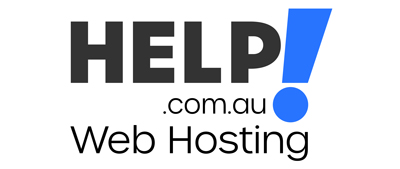petermeadit
Top Contributor
Luke has written a great overview guide of things to consider when buying (.com.au) domains. Thanks to Luke for his great guest post.
Please feel free to leave some comments.
(Author: Luke AKA eBranding.com.au)
----------------------------
Things to consider when buying (.com.au) domains
Term/topic
Length
Local market relevance
Commercial appeal
Brandability and memorability
General advice:
Quality over quantity
Reduce your liabilities
Don't spend what you can't afford to lose
Narrow your focus to proven markets before you 'spread your wings'
DON'T:
Please feel free to leave some comments.
(Author: Luke AKA eBranding.com.au)
----------------------------
Things to consider when buying (.com.au) domains
Term/topic
- If the term isn't commonly used (spoken, written, searched online etc) - then it will be harder to sell.
- If you're planning to build a business around a domain that is a little known term, it will be more challenging (expensive) to achieve consumer recognition and recall of your brand.
Length
- Shorter domains are easier to sell and typically sell for higher prices.
- They're also better for building brands around (easier to say, type and remember).
- It's very rare that I buy a domain of more than two words and I also try to stay under 16 characters. That's my personal approach, but it seems a sensible guideline if you're starting out.
Local market relevance
- For ccTLDs (such as .com.au), you really need to focus on quality if you're aiming to resell for a profit at any time in the future. Australia is a smaller market (than .com for example) and more alternatives are still available to businesses (less terms registered). Maybe they could register and use 'ProductStore.com.au' instead of buying your 'ProductShop.com.au'.
- Any ccTLD domains you buy should also be relevant to the local market in terms of appropriate language, terminology etc.
Commercial appeal
- Could a business build a brand around the domain? Could it be used to sell or promote a product? Domains that have broad appeal to lots of businesses are valuable - it's that simple.
- A domain that may be suitable for a small personal blog but not much else - not particularly valuable.
Brandability and memorability
- Is the term easy to say, spell and remember? Domains that tick all of those boxes are more likely to have value.
- If a domain is long, easy to misspell or fails the radio test - it's not great for branding, which makes it less desirable (and therefore less valuable).
- Some short, generic words are highly brandable because they could be used across a range of industries and tick all the boxes I mentioned (easy to spell etc).
General advice:
Quality over quantity
- Buy less domains, buy better quality domains.
- If you can't find any decent domains to hand register, don't just register what's available - because most of the time it will be rubbish (particularly when you're first starting out - I've been there).
- Look at buying on the aftermarkets and bidding on the drops (but see points below under 'Don't spend what you can't afford to lose'). Once you have more knowledge and confidence, you could pursue some private transactions by contacting domain owners directly.
Reduce your liabilities
- You're far better off having a smaller portfolio of quality domains. You'll have a lower annual cost for reg fees, which can add up very quickly.
Don't spend what you can't afford to lose
- Set yourself a limit on auctions, individual sales, hand regs etc - and stick to it.
- Don't get swept up in the emotion of it all, make rational financial decisions that suit your circumstances. There will always be other opportunities.
- The best financial decisions are often the purchases you don't make. In 'domaining' this is particulary true for those just starting out.
- Not all domains are 'assets', some are just liabilities because they cost you money and provide no return.
- Remember what you spend may never come back to you. The probability of this is particularly high when first starting out (I call it my 'learning curve cost', but I could have learnt more and spent less).
Narrow your focus to proven markets before you 'spread your wings'
- I would suggest sticking with extensions that have some demonstrated liquidity, like .com and locally .com.au.
- Investing (let's be realistic: 'speculating') in other extensions should only be done if it's top-tier terms and you have a very strong grasp on asset values so you can flip at a profit. Otherwise you're just wasting money on reg fees, because your chances of selling a crappy .us or .cc domain are incredibly low.
DON'T:
- Buy a domain that has just one potential buyer. If they're not interested, then you've just wasted your money on a domain that no one wants.
- Buy domains that contain trademark terms, company names etc. These are not lottery tickets - they're liabilities and can land you in hot water.
- Buy lots of 'brandables' - I.e. a made up word which you think sounds like a 'cool name'. If you haven't nailed buying quality terms yet, this is not the area to learn the ropes.
- Buy lots of 'future trend' domains - odds are these will all be worthless. If you read about the next 'big thing' - chances are you're already too late - all the good domains will be long gone.
- Buy a term that has the wrong singular or plural usage. For example, BreadsShop.com.au.
- Buy a domain without checking that the spelling is correct. It's pretty easy: copy and paste into a Microsoft Word document, copy and paste into Google - if either of them flag incorrect spelling, you've just saved yourself some money.
- Buy dash/hyphen domains for resale (e.g. rubbish-domain.com.au). They rarely sell and when they do it's usually only top-tier terms. In some countries (such as Germany and France) dashes are commonly used, in Australia they aren't - so don't bother.






